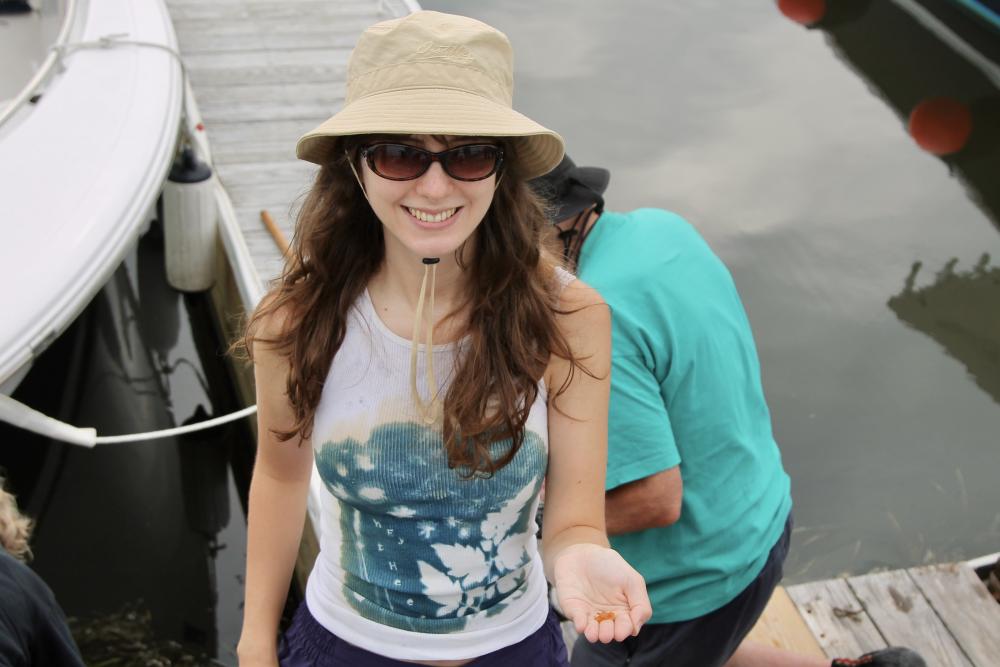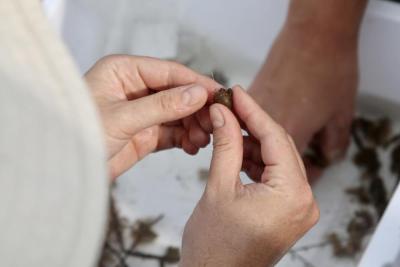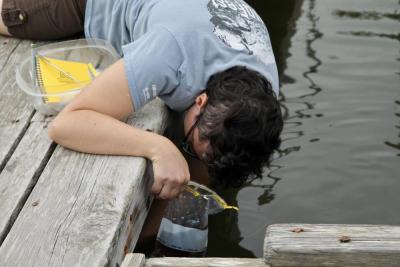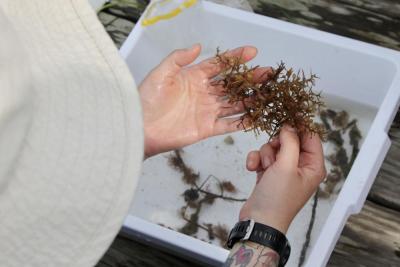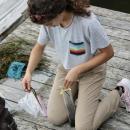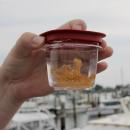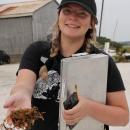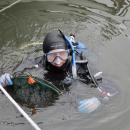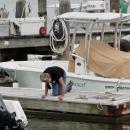Invasive or native, these scientists want to know either way
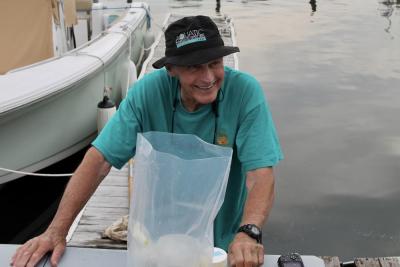
Some invasive species are quite cozy on South Coast docks, but they make it hard for native species to thrive, as they negatively impact the natural ecosystems.
To collect the samples, the scientists lay and bend over the dock reaching their arms into the murky water, pulling up whatever they can for an hour. After they have collected as many creepy crawlies, swimmers and sea plants as possible they are brought back to the lab to investigate if they are native or invasive.
This “Rapid Assessment Survey” took place on August 10 at F.L. Tripp and Sons Boatyard and Marina in Westport.
Anne Donovan of Coastal Zone Management said the research is “applicable to the entire region” and because the marina is close to Dartmouth, it is a good measurement of what is happening locally as well.
The project is orchestrated by Massachusetts Coastal Zone Management every three to five years, conducting their research from the coast of Maine down through the South Coast and Cape Cod.
“They are rapidly assessing what is happening with the species that attach to the docks primarily,” said Donovan. “So they can see what is coming, what is new, what ranges are expanding or shrinking.”
Some of the volunteers have been in the field for decades and can personally attest to the impacts of climate change observed during the research.
“When you put your hand in the water [you go,] ‘oh this is swimming water, this is so much warmer,’” said Larry Harris, retired professor of marine biology at the University of New Hampshire.
In addition to the cluster of scientists on the dock, two divers collected creatures from the dock side. They pulled out seaweed, small crustaceans, and the occasional spider crab.
Above the water, Avril Lynch, a marine and invasive species intern for Coastal Zone Management, was thrilled to show off a nudibranch she collected. The bright orange sea slug will be used for their research.
“This is probably the biggest one I've seen on this trip, or ever,” Lynch said.
The report won’t be finished for a few months. The group expects to report the changes in aquatic populations or the introduction of new species to the coast.
“They’re like kids at camp, so excited to get in there and start digging and seeing what they find,” Donovan said.



